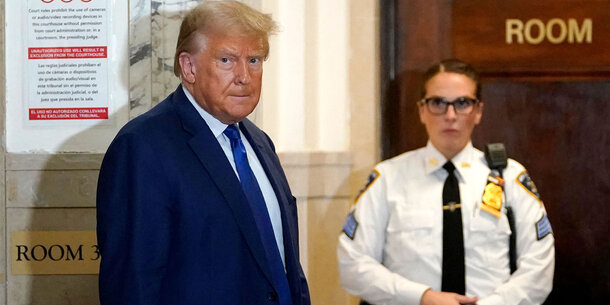Update: On July 18, 2024, the full Fifth Circuit Court of Appeals overturned by a 13–6 vote the three-judge panel’s ruling that Mississippi’s lifetime voting ban violates the Eighth Amendment’s prohibition against cruel and unusual punishment.
A federal appeals court ruled in August that Mississippi’s lifetime ban on voting for people convicted of certain felonies violates the Eighth Amendment’s prohibition against cruel and unusual punishment. The remarkable 2–1 ruling by the U.S. Court of Appeals for the Fifth Circuit, which will re-enfranchise tens of thousands of people, is a powerful example of how litigation and out-of-court advocacy can be complementary tools for restoring voting rights. The full Fifth Circuit has accepted the state’s request to rehear the case, which will be argued on January 23. In December, the Brennan Center filed a friend-of-the-court brief supporting the ruling.
The lawsuit, Hopkins v. Hosemann, was filed by the Southern Poverty Law Center and the law firm Simpson Thatcher & Bartlett LLP in 2018 on behalf of Mississippians who couldn’t vote even though they had completed their sentences. The groundbreaking ruling relied in part on the national trend of states moving away from harsh disenfranchisement policies like Mississippi’s toward allowing more people with past felony convictions to vote.
Prior to the Fifth Circuit’s ruling, Mississippi was one of 11 states with a lifetime voting ban for crimes that have nothing to do with elections or good governance. People convicted of one of 23 felonies in Mississippi, including timber larceny and writing a bad check for $100, were banned from voting for life unless they received a gubernatorial pardon or had their voting rights restored by a two-thirds vote of both the state senate and house. The ban excluded over 10 percent of the state’s voting-age population from voting — more than 90 percent of whom are no longer in prison. The Reconstruction-era ban also disproportionately burdens the state’s Black population, disenfranchising one in every six Black adults — and that is not a coincidence.
Mississippi first adopted its lifetime voting ban as part of the state’s 1890 constitution, “in reaction to the expansion of Black suffrage and other political rights during Reconstruction,” the appeals court noted. White lawmakers chose nine crimes they believed Black men were more likely to commit. Since then, the provision was amended twice: once in 1950 to remove burglary and again in 1968 to add murder and rape — crimes that the court observed have “historically [been] excluded because they were not considered crimes a black person was prone to commit.” Mississippi’s attorney general has also deemed certain crimes as permanently disqualifying.
In striking down Mississippi’s lifetime ban, the appeals court reasoned there is a “national consensus” against lifetime voting bans, as 35 states and Washington, DC, do not have such a policy. The court’s opinion also observed that within the last 50 years, the number of states with any form of a lifetime ban has decreased from 27 to 16. This movement away from lifetime disenfranchisement, the court wrote, “demonstrated that society has turned away from that punishment.”
The decision is significant for several reasons beyond the fact that it restores a fundamental right to a large number of Americans. It is a rare victory for plaintiffs challenging a state’s felony disenfranchisement law in court, including Mississippi’s.
The panel’s ruling is also significant because the success achieved by advocates outside the courtroom was a deciding factor in the court concluding that Mississippi’s policy is unconstitutional. Indeed, all of the states that got rid of lifetime bans within the last 50 years did so not because of a court order, but because of the actions of governors, state legislatures, and voters. And in the last few years, 12 states and Washington, DC, have changed their policies — through gubernatorial action, legislation, or ballot initiative — to allow more Americans with past convictions to vote.
Despite the panel’s ruling that Mississippi’s ban cannot stand under the Constitution because society has rejected such a policy as cruel and usual, 10 states — Alabama, Arizona, Delaware, Florida, Iowa, Kentucky, Nebraska, Tennessee, Virginia, and Wyoming — have similar bans on the books. Three of those states — Florida, Tennessee, and Virginia — have also recently rolled back reforms that had established a path for many citizens with past convictions to have their voting rights restored. However, governors in two of those states — Iowa and Kentucky — have used their executive authority to restore voting rights to most people with convictions in their past.
Still, as the opinion correctly notes, there is a “clear and consistent trend in our Nation against permanent disenfranchisement,” which the full Fifth Circuit should recognize. The decision’s reliance on this trend to strike down Mississippi’s lifetime ban makes clear why advocates seeking to restore voting rights must continue to push for reform not just in the courts, but also in the court of public opinion.
The court’s recognition that lifetime disenfranchisement is at odds with our societal values also sends a powerful message to Congress that it should pass the Democracy Restoration Act, so that the 3.5 million Americans who are barred from voting despite living and working in their communities can vote in federal elections.



